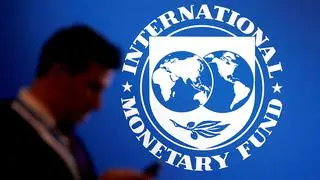In order to curb evasion by companies engaged in manufacturing pan masala, gutkha, chewing tobacco and mentha oil, the Central Board of Indirect Taxes & Custom (CBIC) has notified norms for restricting IGST (Integrated Goods & Services Tax) refund in respect of these products. Experts say this will affect cash flow for exporters.
The restriction, applicable from October 1, is based on the GST Council’s recommendation of July 11. According to the notification, the restriction will be applicable on 25 types of products, including pan-masala, unmanufactured tobacco (with or without lime tube) – bearing a brand name, ‘Hookah’ or ‘gudaku’ tobacco bearing a brand name, tobacco used for smoking ‘hookah’ or ‘chilam’, smoking mixtures for pipes and cigarettes, filter khaini, pan masala containing tobacco ‘Gutkha’ and tobacco products with or without brans, beside others.
The restrictions will also be applicable on essential oils other than those of citrus fruit, namely, of peppermint (Mentha piperita), other mints, spearmint oil (ex-mentha spicata), water mint-oil (exmentha aquatic), horsemint oil (ex-mentha sylvestries), bergament oil (exmentha citrate) and Mentha arvensis.
The GST Council’s recommendation is based on the suggestions of the Group of Ministers (GoM) under the chairmanship of Odisha’s Finance Minister, Niranjan Pujari. The group suggested that for commodities such as pan masala, gutkha, chewing tobacco, and similar other goods, the IGST refund route on exports should be closed, similar to the recommendation made for Mentha Oil and, if necessary, exports may only be allowed against the LUT (Letter of Undertaking), with the consequential refund of accumulated input tax credit.
Also read: GST evasion of ₹14,302 crore detected in April-May; 28 persons arrested
Accordingly, the Law Committee (part of the GST Council comprising officers from the Centre and States) recommended that an amendment to Section 16 of the IGST Act, made through Section 123 of the Finance Act 2021 (which provided for enabling provision for restricting IGST Refund route in respect of certain supplies or suppliers), may be notified at the earliest. “Along with the same, all goods or services may be notified, which may be exported on payment of integrated tax and on which the supplier of such goods or services may claim a tax refund, except for goods recommended by the GoM in its report, on which the IGST refund route will not be available,” it said.
A notification has been issued following this. Rajat Mohan, Senior Partner with AMRG & Associates, says though IGST refund in respect of exports of pan masala, tobacco and other similar items, including mentha oil is restricted, tax refunds for such exports would continue to be sanctioned in the ordinary course by the proper officer of the jurisdictional tax authority.
Such restriction on automated refunds for pan masala, tobacco and other similar items, would lead to a blip in Exporters’ Cash Flow, reduce global competitiveness in the sector, and increase compliance and the administrative burden on the exporters. Depending on the extent of the impact of such restriction, exporters may reduce their export volumes due to cash flow constraints. On the other hand, restricting IGST refunds may lead to a temporary increase in tax revenue for the government, as the refund amount will remain with the government for an extended period.
“India is one of the major exporters of pan masala, primarily to countries in West Asia, South-East Asia, and some African nations. Thereby, exporters of pan masala may see constrained cash flow position in the last quarter of 2023 impacting the normal course of business,” he said.








Comments
Comments have to be in English, and in full sentences. They cannot be abusive or personal. Please abide by our community guidelines for posting your comments.
We have migrated to a new commenting platform. If you are already a registered user of TheHindu Businessline and logged in, you may continue to engage with our articles. If you do not have an account please register and login to post comments. Users can access their older comments by logging into their accounts on Vuukle.